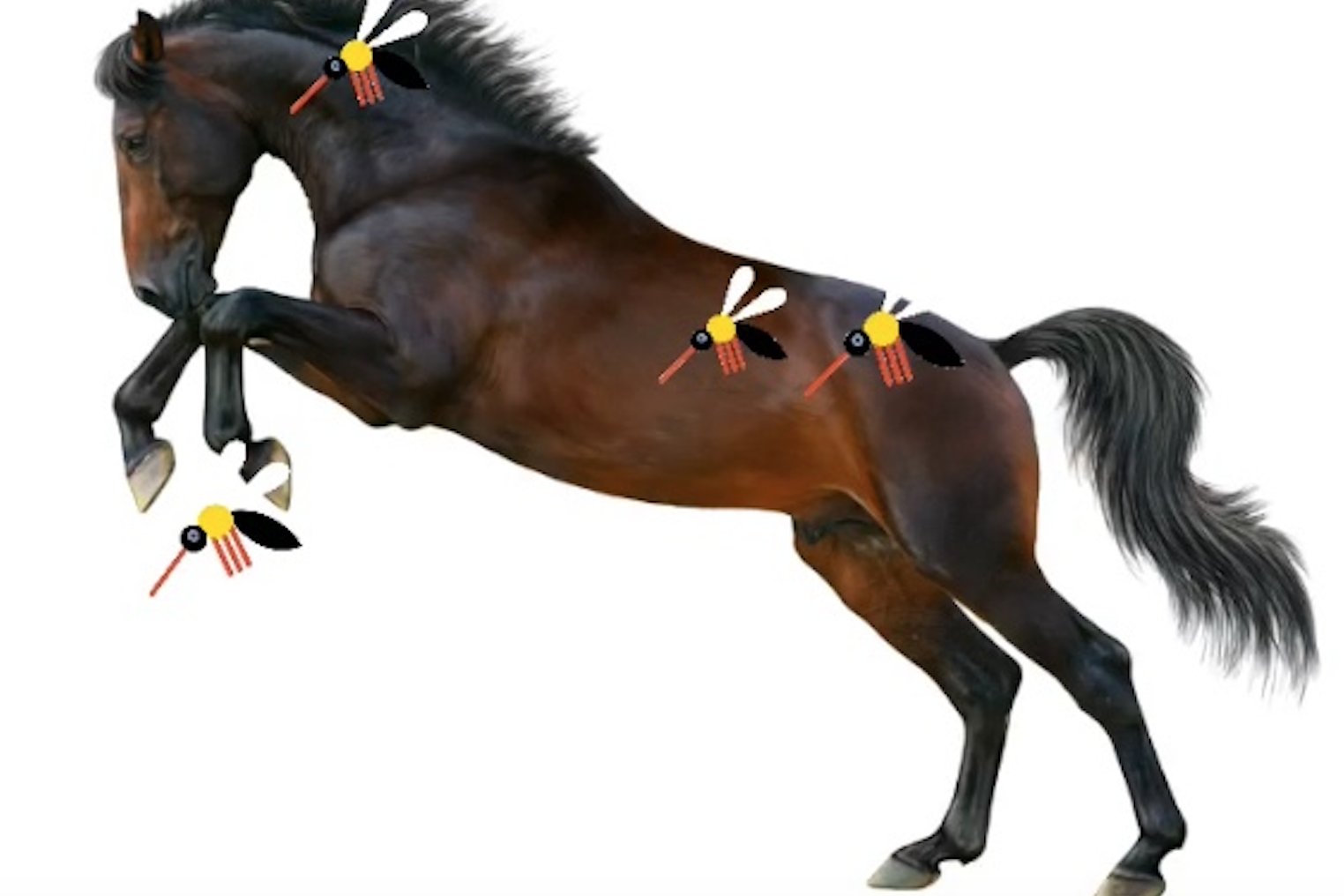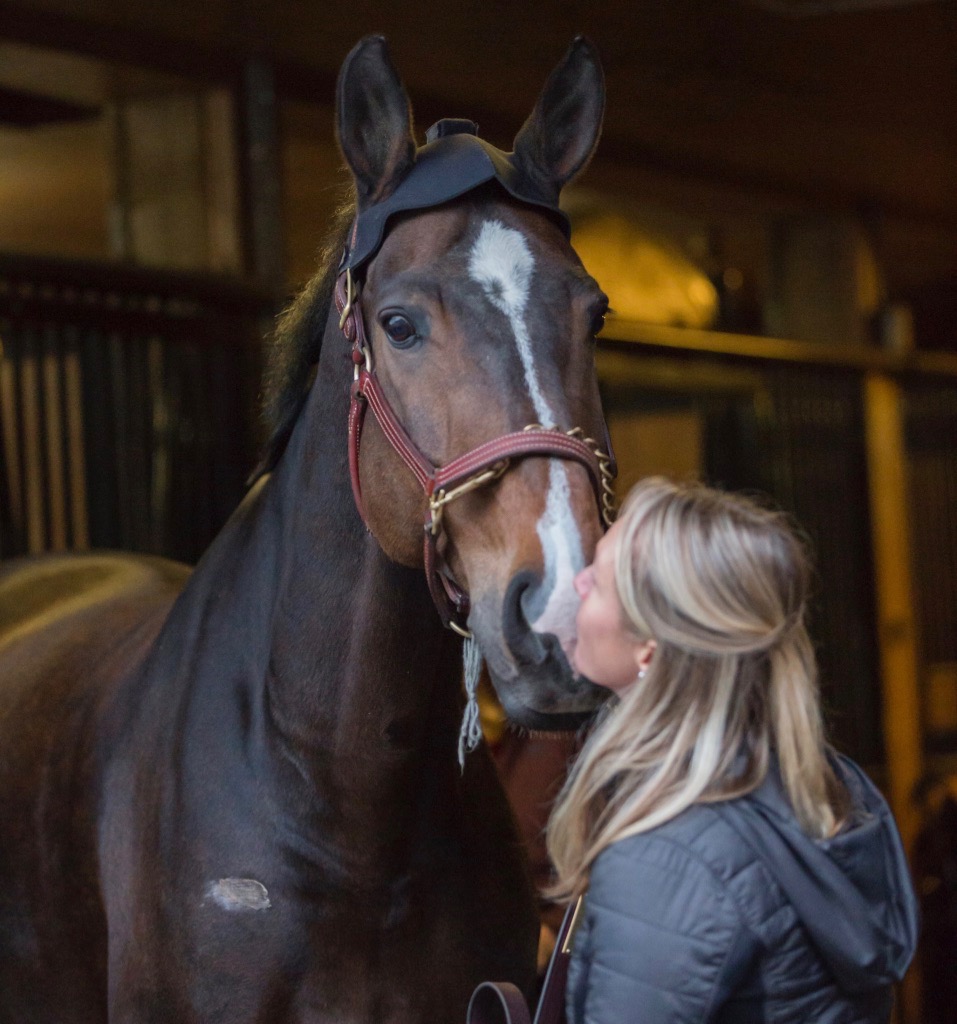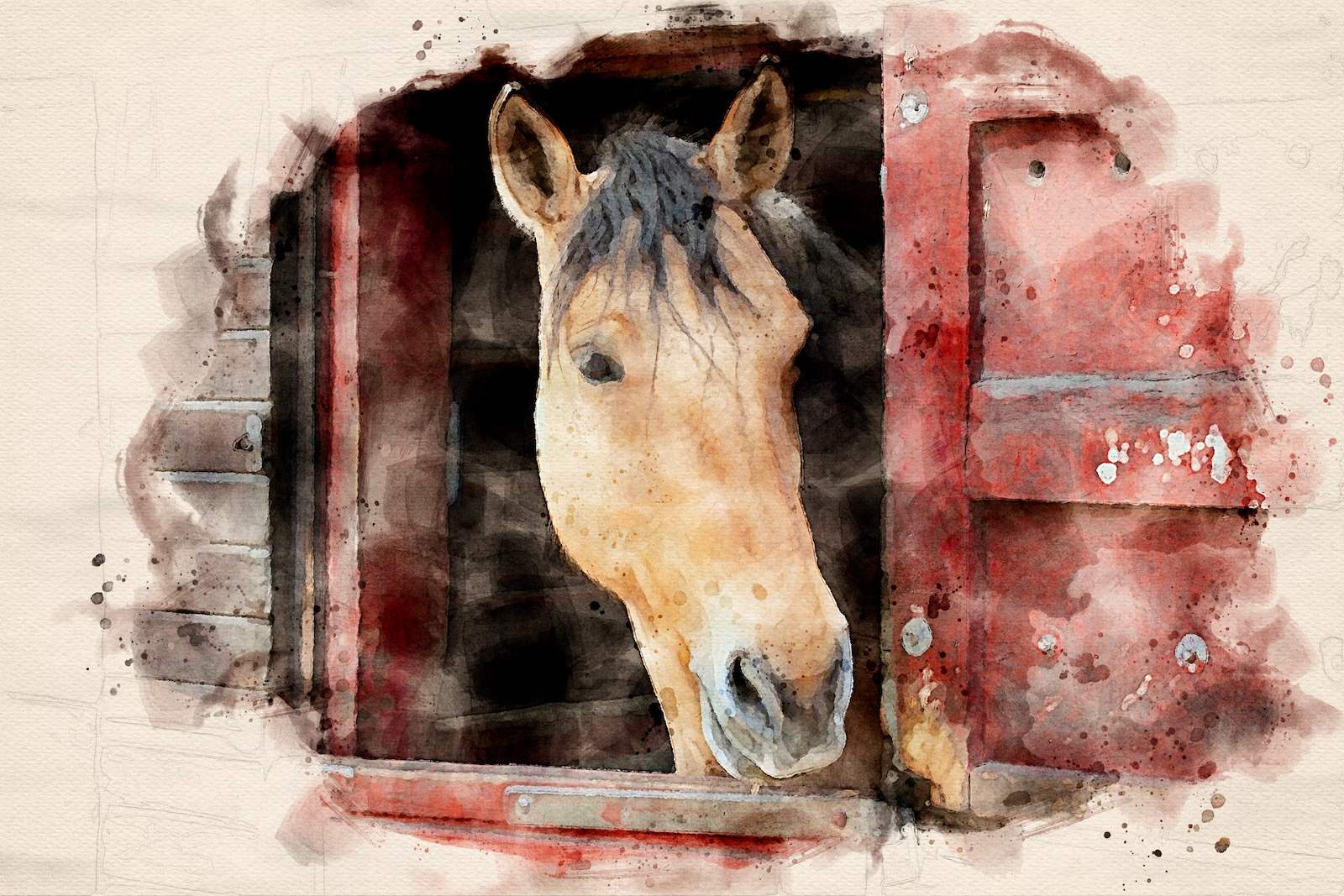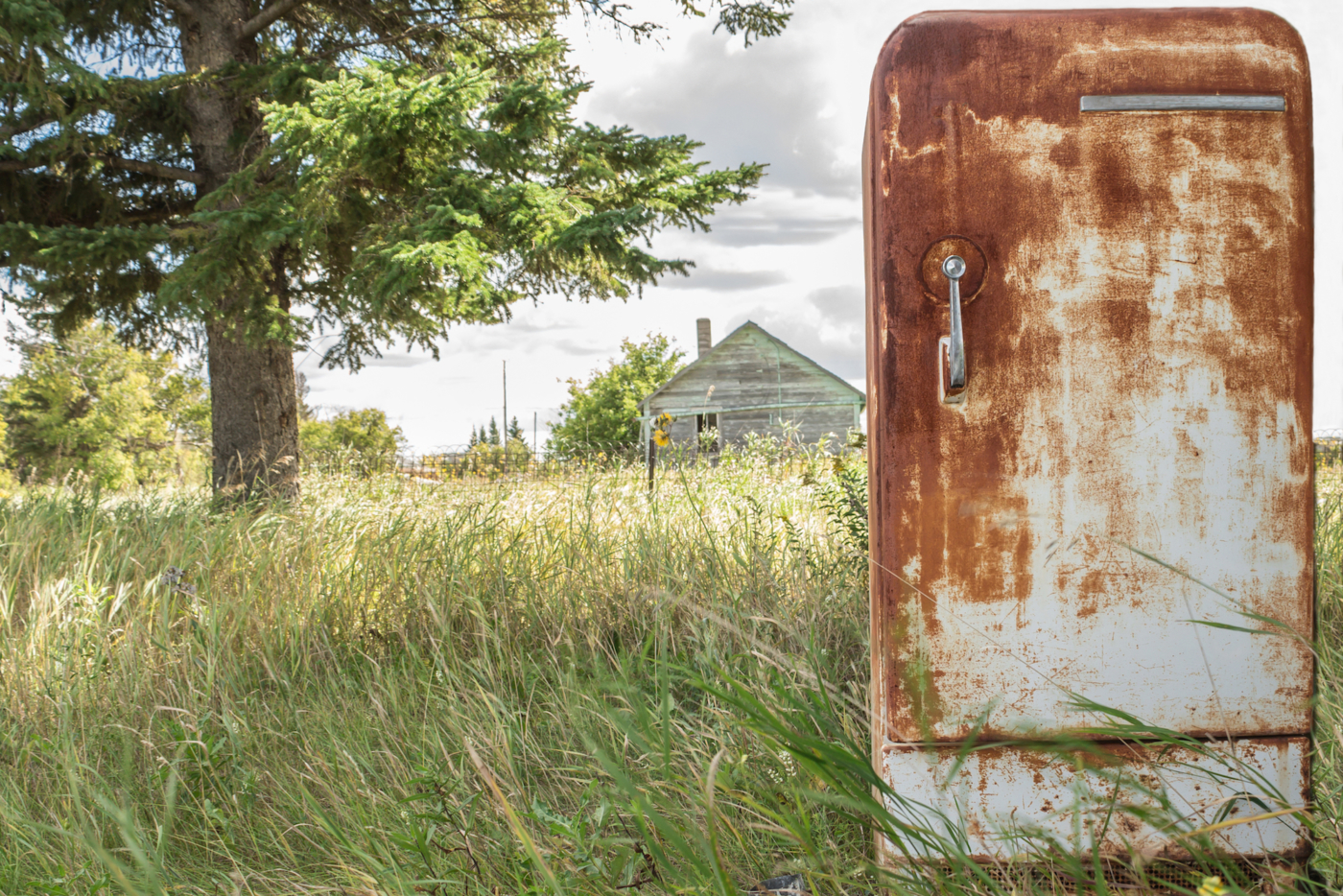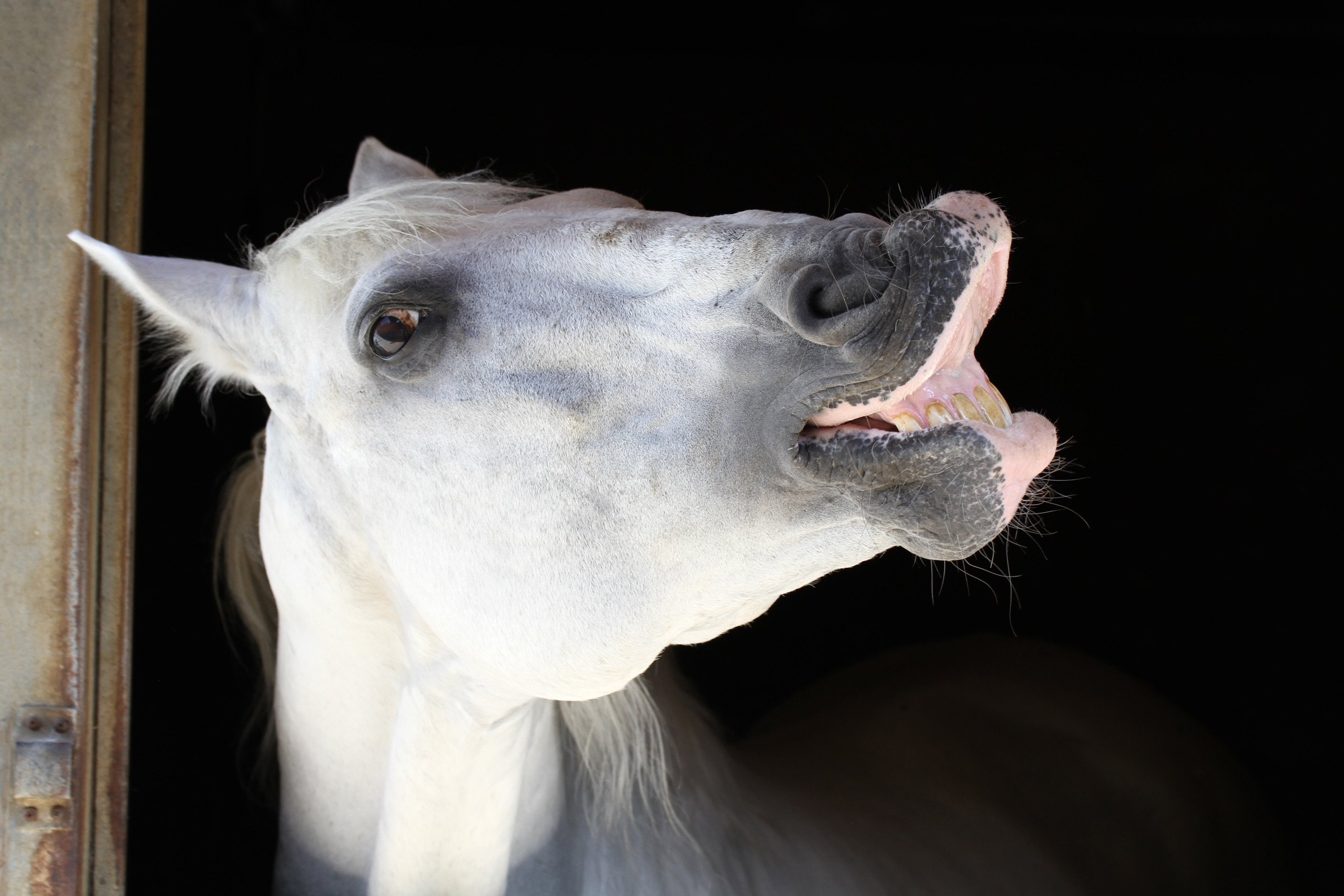For many, autumn means pumpkin patches, pumpkin spice, and sweater weather. However, for equestrians, it can elicit more tricks than treats. In much of the country, fall’s cooler temperatures bring wet weather…and mosquitos. Though most people find these tiny critters to be little more than an itchy nuisance, any knowledgeable horseperson understands that when it comes to their beloved equines, the stakes can be quite high. Mosquitos are the chosen vector for many arboviruses (in layman’s terms: bugs transmitted by bugs) that affect horses, and unfortunately, ‘tis the season.
So this week we called upon Grand Prix Equine, and enlisted the expertise of long-standing OR veterinarians Dr. Johanna Kremberg and Dr. Luvie L. Abell (as well as the comedic aptitude of GPE-founder, Dr. Mark Baus). We asked them to provide the full download on symptoms and prevention of two common arboviruses: West Nile Virus (WNV) and Eastern Equine Encephalitis (EEE). Of course, they were more than happy to share some insight, especially because an emergency visit to the farm at 10:30 on a Saturday night was not required.
Every horse owner shivers at the thought of ticks. Why should mosquitos be afforded the same respect?
Dr. Kremberg: Ticks are certainly worthy of respect, but many times you will see the tick or notice the swollen site after it happens. Mosquito bites, on the other hand, are over with in a few seconds and may leave no trace. Ticks are most commonly found in tall grasses and brush, whereas mosquitos live and breed in wet environments with still, stagnant water. Mosquitos in other parts of the world can be infected with malaria, dengue, Zika and yellow fever. Mosquitos currently in our area (NY & CT) can be infected with West Nile, and Eastern Equine Encephalitis.
Please give a quick synopsis of both West Nile Virus and Eastern Equine Encephalitis, including symptoms, treatment, and prognosis.
Dr. Kremberg: Both WNV and EEE are arboviruses, transmitted by mosquitos, that can result in encephalitis. Encephalitis is a term for swelling of the brain and spinal cord and can result in fevers, confusion, seizures and death. WNV has only been endemic in the US bird population since 1999, and peak incidence occurs in the northeast from August through the first frost around November.
WNV is not as lethal as EEE in horses or humans. According to Medscape, less than 1% of humans that are infected show any clinical signs, and of those that show signs, only 3-15% are fatal. This is relatively low morbidity and mortality from an infectious disease perspective. In horses the mortality rate is slightly higher at around 30%. Clinical signs in horses include fever, muscle tremors, weakness, and in the worst cases, recumbence and death.
How can these arboviruses be prevented?
Dr. Abell: Vaccination! With proper vaccination, these arboviruses are highly preventable in horses. EEE and WNV are transmitted to horses primarily by mosquitoes, and rarely by other blood sucking insects. So, in addition to a proper vaccination protocol for your area and your horse’s travel recommended by your veterinarian, insect control is beneficial. Change your horse’s water buckets frequently and eliminate unnecessary sources of standing water around the farm.
How effective are the vaccines?
Dr. Abell: While the EEE vaccine and WNV vaccine are both highly effective, the EEE vaccine does show more success with preventing infection completely. An important point to note is that a proper vaccine protocol is vital to ensuring that your vaccines are working for your horse in the best manner possible. Vaccine protocols, or the timing and frequency of vaccine administration, for these viruses depend on the location of your horse, their age, vaccine history, and history of previous infection with either virus. Due to the high prevalence and high fatality of both viruses, and the availability of very safe and effective vaccine products, EEE and WNV are on the list of “core vaccinations” for all equids listed by the American Association of Equine Practitioners (AAEP), along with rabies, tetanus, and WEE (EEE’s mid-west and west coast cousin).
It seems as if there has been a spike in EEE lately. Is this accurate, and if so, is there a theory about the cause?
Dr. Abell: According to the EDCC (Equine Disease Communication Center), there have been 18 confirmed cases of EEE in horses between New England and New York thus far in 2019 (6 in CT, 8 in MA, 3 in NY, and 1 in ME). This is a significant increase compared to the last few years for our area, and all cases have been identified from late summer to early fall. So, it’s safe to say that we’re in an outbreak of EEE in the coastal northeast. All but one of these cases were classified as unvaccinated for EEE, or the very common phrase – “undervaccinated,” meaning that the horse was not up to date with a proper vaccination protocol. When looking at human cases of EEE, there have been more cases in CT this fall than there have been in the last 10 years. We haven’t seen nearly as dramatic of a spike in the rest of the northeast as of yet. As to a theory about the cause, it’s possible that mosquitos have a more virulent strain of EEE, but more likely that there are simply more mosquitoes or that the mosquitoes have lasted a bit longer into the year. If you ask me, climate change is a reasonable explanation for this. Hotter, longer, and wetter summers promote heavier mosquito populations that last longer into the fall.
Dr. Kremberg: We are lucky that a vaccine is available for horses, while us humans just have to pray we aren’t bitten by mosquitos!
So…what’s the good news?
Dr. Abell: On a higher note, even though EEE might be terrifying, the horse vaccine is remarkably safe and effective, and even comes with a big guarantee. Develop a good relationship with your vet who will ensure your horse is vaccinated with the best product on the market that provides an immunization guarantee.
A mosquito, a fly, and a tick walk into a bar[n]…
Dr. Baus: …and immediately ask the bartender for a Bloody Mary!


